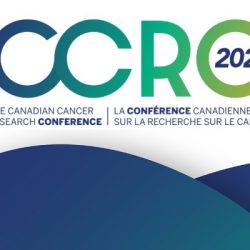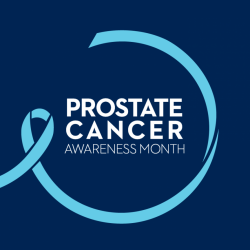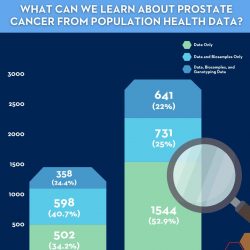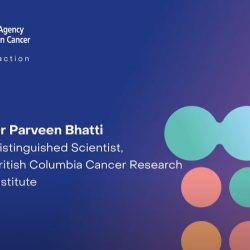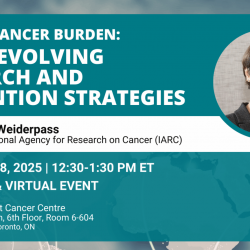To round up Prostate Cancer Awareness Month, we are highlighting some of the recent and ongoing work on prostate cancer conducted using Atlantic PATH data and biosamples. Flashback to 2023 and welcoming our youngest team member(!) and the Plaid for Dad tradition raising awareness about prostate cancer in Canada. We have ongoing research on prostate cancer exploring environmental exposure to arsenic and cancer risk using toxicological and machine learning methods. This research stream has received and benefitted from funding from Nova Scotia Health, the Beatrice Hunter Cancer Research Institute, Prostate Cancer Canada, the Canadian Cancer Society, and the New Frontiers in Research Fund. Watch this space for new findings and publications! Related publications to date include: Majouni, S., Kim, J.S., Sweeney, E., Keltie, E., Abidi, S. (2022). Applying Machine Learning to Arsenic Species and Metallomics Profiles of Toenails to Evaluate Associations of Environmental Arsenic with Incident Cancer Cases. Medical Informatics Europe Conference (MIE) Conference Proceedings. Studies in Health Technology and Informatics. Keltie, E., Hood, K., Cui, Y., Sweeney, E., Ilie, G., Adisesh, A., Dummer, T.J.B., Bharti, V., Kim, J.S. (2022). Arsenic speciation and metallomics profiling of human toenails as a biomarker to assess prostate cancer cases: Atlantic PATH cohort study. Frontiers in Public Health, 10. https://www.ncbi.nlm.nih.gov/pmc/articles/PMC9301242/ Hood, K., Sweeney, E., Ilie, G., Keltie, E., Kim, J.S. (2023). Toenail arsenic species and metallome profiles associated with breast, cervical, prostate, and skin cancer prevalence in the Atlantic Partnership for Tomorrow’s Health cohort. Frontiers in Public Health, Environmental Health and Exposome. https://www.frontiersin.org/articles/10.3389/fpubh.2023.1148283/full Smith, N., Keltie, E., Sweeney, E., Weerasinghe, S., MacPherson, K., Kim, J.S. (2022). Toenail speciation biomarkers in arsenic-releated disease: a feasibility study for investigating the association between arsenic expsosure and chronic disease. Ecotoxicology and Environmental Safety, 232. https://www.sciencedirect.com/science/article/pii/S0147651322001099 The Langille Lab at Dalhousie University has an ongoing research stream on the microbiome. This work has included a focus on prostate cancer. Related publications include: Nearing, J., DeClercq, V., Langille, M. (2023). Investigating the Oral Microbiome in Retrospective and Prospective Cases of Prostate, Colon and Breast Cancer. Nature Biofilms and Microbiomes. https://www.nature.com/articles/s41522-023-00391-7. We have also conducted research on the mental health of prostate cancer survivors compared to those with no history of cancer and those with types of cancer. This work was supported by funding from the Beatrice Hunter Cancer Research Institute. Publications to date include: Ilie, G., Rutledge, R., Sweeney, E. (2020). Anxiety and depression symptoms in adult males in Atlantic Canada with or without a lifetime history of prostate cancer. Psycho-Oncology. https://onlinelibrary.wiley.com/doi/10.1002/pon.5244 Ilie, G., Rutledge, R., Sweeney, E. (2021). An examination of the role of socioeconomic status in the relationship between depression and prostate cancer survivorship in a population-based sample of men from Atlantic Canada. Oncology, 99(4). https://pubmed.ncbi.nlm.nih.gov/33486485/ Ilie, G., Rutledge, R., Sweeney, E. (2021). Post-Treatment Adverse Health Correlates among Prostate Cancer Survivors in a Sample of Men Residing in Atlantic Canada. Current Oncology, 28(4). https://www.mdpi.com/1718-7729/28/4/246


